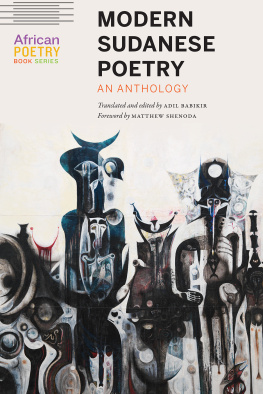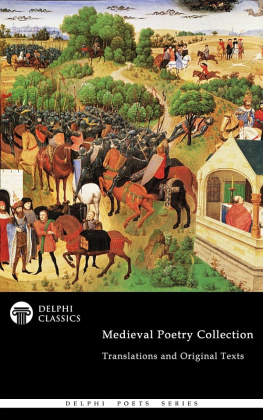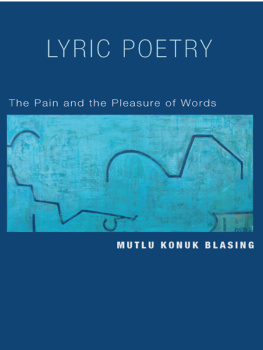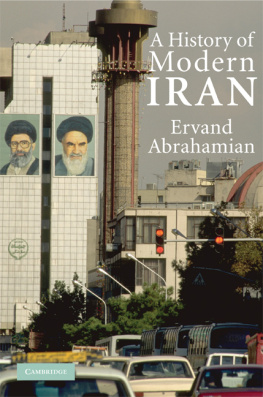THE PEARL OF DARI
PUBLIC CULTURES OF THE
MIDDLE EAST AND NORTH AFRICA
Paul A. Silverstein, Susan Slyomovics, and Ted Swedenburg, editors
THE PEARL OF DARI
Poetry and Personhood among
Young Afghans in Iran
Zuzanna Olszewska

This book is a publication of
Indiana University Press
Office of Scholarly Publishing
Herman B Wells Library 350
1320 East 10th Street
Bloomington, Indiana 47405 USA
iupress.indiana.edu
2015 by Zuzanna Olszewska
All rights reserved
No part of this book may be reproduced or utilized in any form or by any means, electronic or mechanical, including photocopying and recording, or by any information storage and retrieval system, without permission in writing from the publisher. The Association of American University Presses Resolution on Permissions constitutes the only exception to this prohibition.
The paper used in this publication meets the minimum requirements of the American National Standard for Information SciencesPermanence of Paper for Printed Library Materials, ANSI Z39.481992.
Manufactured in the United States of America
Cataloging information is available from the Library of Congress
ISBN 978-0-253-01752-9 (cloth)
ISBN 978-0-253-01760-4 (paperback)
ISBN 978-0-253-01763-5 (ebook)
1 2 3 4 5 20 19 18 17 16 15
For my parents.
I was possessed by
a contradictory nostalgia
for things I had never known,
for emptiness: the recesses of Bamiyan.
John Ash, from Recess in The Parthian Stations
Never durst poet touch a pen to write
until his ink were temperd with Loves sighs
William Shakespeare, Loves Labours Lost
Preface
T HE TITULAR P EARL of Dari encompasses a variety of meanings that are central to the themes of this book. First, it refers directly to the name of one of the Afghan refugee cultural organizations with which I worked in Iran, the Moasseseh-ye Farhangi-ye Dorr-e Dari or Pearl of Dari Cultural Institute. Dari here is a direct reference to the dialect of Persian that is spoken in contemporary Afghanistan and that is one of the official languages of that country, while the pearl is its literature, often portrayed as a valuable gem.
The poetic couplet from which this figure derives, however, is much older than Afghanistan and suggests a different meaning of the word Dari: Man n-am ke dar p-ye khukn narizam / mar in qeymati dorr-e lafz-e dari r (I am he who will not throw at the feet of swine / this precious pearl of the Dari language). This is a couplet by Naser Khosrow Qobadiyani, an eleventh-century Persian poet and scholar who traveled widely but was born and died in what is today Afghanistan. In historical usage, the term Dari refers to the Middle Persian language spoken at the court of the pre-Islamic Sassanids and is thought to be a contraction of darbri (of the court). Rather than merely being a token of difference, then, it is actually a reminder of the common linguistic origins of Persian dialects that predate the formation of both modern Iran and Afghanistan. Naser Khosrow himself is claimed as a literary ancestor by both Iranians and Afghans.
The couplet represents Naser Khosrows retort when asked why he did not compose eulogistic poems for rulers, whom he sees as unworthy of the beauty of words. On yet another level, then, someone familiar with the poem might relate it to the politically neutral stance of Dorr-e Daris founders and their insistence that, following decades of violence in Afghanistan, the road to national unity, development, and progress lies in cultural work that should not be sullied by ideological partisanship. (This stance is complicated by the fact that Dari is not the mother tongue of all the people of Afghanistan, and its status as lingua franca of the country has long been challenged by politicized efforts to promote Pashto, topics that this book can touch on only briefly.)
Finally, to me, the phrase echoes one of the major themes of this book, that of a constant navigation between outside appearances and inner truths in the construction of the self: the pearl in the oyster shell.
Acknowledgments
T HE FACT THAT my work engaged with both the very public and the more intimate aspects of my informants lives was not without challenges for me in the writing of this ethnography. On the one hand, it did not make sense to pseudonymize the poets whose referenced published work, for which they deserved full credit, was being discussed. As public figures they expected to be named and were used to their work being critiqued and interpreted. On the other, many of the details of their life stories, including some that affected their poetic output, were sensitive, and so following extensive discussions with them, I have either separated these aspects from named poets in the text, sought explicit permission to write about them, or been obliged to exclude them altogether. Any resulting loss of ethnographic richness was disappointing but I considered it unavoidable within the framework of this book. I hope there will be opportunities to write other kinds of stories in the future.
This book and the research leading to it would not have been possible without the assistance and input of a great many people and organizations, to whom I am deeply indebted. My initial research was funded by the Scatcherd European Scholarship, the Vice-Chancellors Fund Award, and research funds from Wolf-son College and the Institute of Social and Cultural Anthropology at the University of Oxford, while my travel to Iran was funded by the British Institute of Persian Studies. I am grateful to Dominic Brookshaw and John Gurney for first introducing me to the sweetness of Persian and facilitating my language study in Iran. In Iran, I was introduced to the Afghan community by Fatemeh Ashrafi of Hami, the Association for the Protection of Refugee Women and Children; and by Homa Hoodfar, Sarah Kamal, Marzieh Sharifi, and Maryam Golduzian. Fariba Adelkhah, Roxanne Varzi, Sayed Askar Mousavi, and Alessandro Monsutti gave me valuable advice and support. Massoumeh Farman-Farmaian and Safak Pavey of UNHCR Tehran provided me with information and Johannes van der Klaauw and Jadwiga Pietrzak offered friendship and support in Mashhad. I am particularly grateful to Professor Mohammad Yahaghi, Head of the Persian Literature Department of the Faculty of Letters and Humanities at Ferdowsi University of Mashhad, for kindly arranging an affiliation with the department that enabled me to use its library and facilities.
I am profoundly grateful to Seyyed Abu Taleb Mozaffari and Mohammad Kazem Kazemi, my Ostds, and all the members of the Dorr-e Dari Cultural Institute for so readily welcoming me into their fold and sharing their love of poetry, their extensive knowledge, and their friendship with me. Not only this ethnography, but also my life would have been far poorer had I not met them.
I would like to express my heartfelt gratitude for the warm and generous hospitality of Maryam and Nader, Farzaneh and Mohammad, Farnaz and her family, Maryam and her family, Seyyed Asadollah and his family, and Nahid and her family, who hosted me for considerable lengths of time during my stays in Iran. Elyas, Belgheis, and all their brothers and sisters played the role of guides, friends, siblings, interpreters (linguistic and cultural), accomplices, and confidantes; each of them is extraordinary in his or her own way, and my research would not have been possible without them. Latifah Jafari and Asef Hossaini provided formal and informal research assistance, introductions to refugee organizations, fact-checking, and cultural observations, while Najieh Gholami helped with translations and was always willing to hear out my ideas; I thank them all for their support and friendship.
Next page






